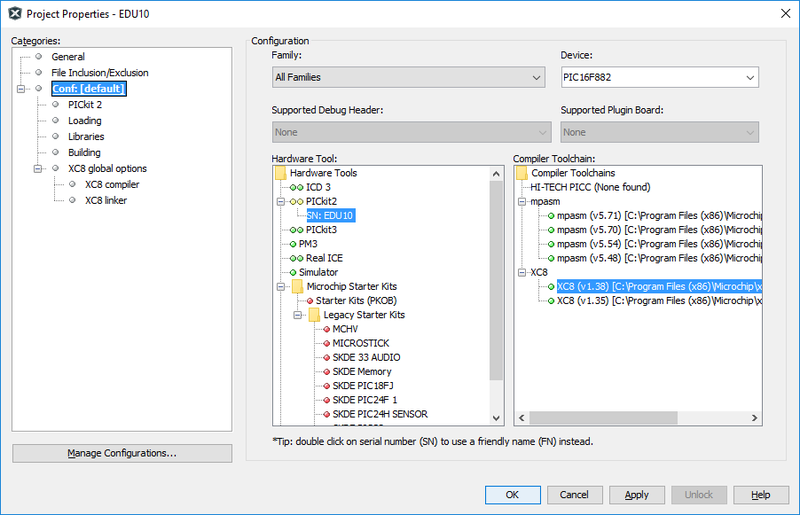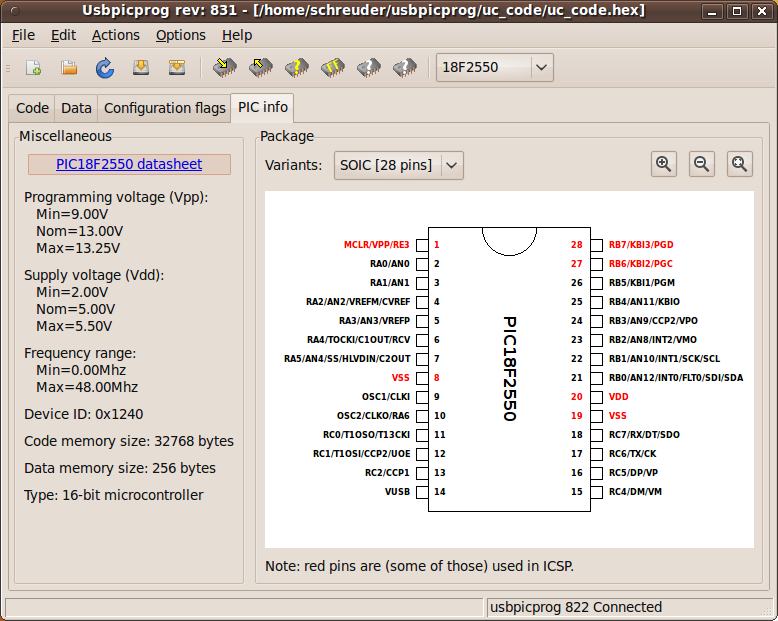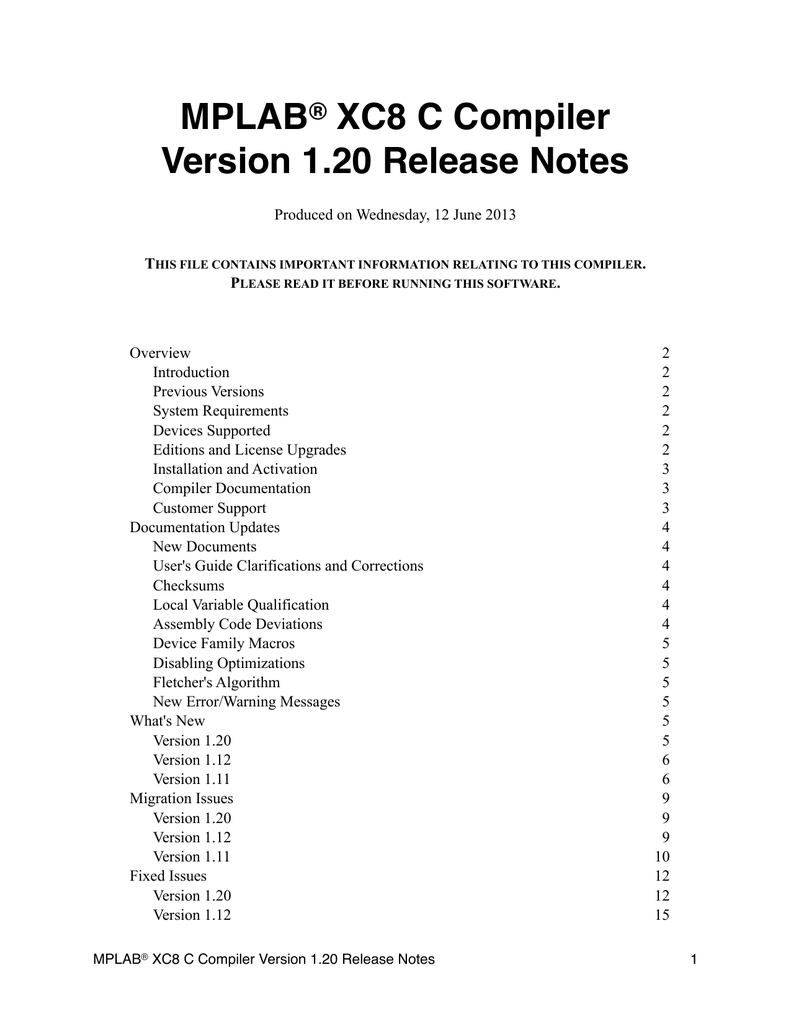- Microchip Xc8 Peripheral Library Download
- Microchip Xc8 Plib Download
- Microchip Xc8 1.45 Download
- Mplab Xc8 Download
MPLAB® XC8 C Compiler User’s Guide for PIC DS50002737A-page 8 2012-2018 Microchip Technology Inc. DEVELOPMENT SYSTEMS CUSTOME R CHANGE NOTIFICATION SERVICE Microchip’s customer notification service helps keep customers current on Microchip products. Subscribers will receive e-mail notification whenever there are changes. MPLAB Mindi Analog Simulator reduces circuit design time and design risk by simulating analog circuits prior to hardware prototyping. The simulation tool uses a SIMetrix/SIMPLIS simulation environment, with options to use SPICE or piecewise linear modeling, that can. Notes: If the PIC or a peripheral you are going to use is not supported yet by the MCC and your PIC is a PIC18 series, you can download from Microchip website under XC8 compilers download tab, the PIC18F Peripheral Libraries now called Legacy Peripheral Libraries as they are no longer included in XC8 compiler starting from XC8 v1.35. More information on Microchip can be seen here. MPLAB XC8 C Compiler is commonly set up in the C: Program Files (x86) Microchip xc8 v1.40 folder, regulated by the user's option. The full command line for uninstalling MPLAB XC8 C Compiler is C: Program Files (x86) Microchip xc8 v1.40 Uninstall-xc8-v1.40.exe. MPLAB XC8 Compiler The PIC18 peripheral libraries, associated header files and documentation are no longer shipped with the newer compiler versions. Code using legacy peripheral libraries will not build with the latest compiler version; there will be errors referring to missing peripheral library routines.

Microchip Xc8 Peripheral Library Download


Discussion thread for the release: Microchip Studio 7.0.2542
Main points:
- Renaming of Atmel Studio to Microchip Studio for AVR and SAM Devices
- Microchip Studio installer bundles with the AVR GCC Toolchain, Arm GCC Toolchain, and the MPLAB XC8 Compiler with AVR devices support. To unlock all optimization options of MPLAB XC8 Compiler, try or get a PRO license.
- Default optimization for debug configuration is -Og, previous it was -O1
- Improved scrolling performance on large projects/files
- AVR Macro assembler version 2.2.8
- Advanced Software Framework 3.49.1, including previous version back to 3.42
- Updated kit recognition
Download links:
Release blurb:
Microchip Xc8 Plib Download
Atmel Studio 7 is being rebranded to Microchip Studio for AVR and SAM devices. The new Microchip Studio, complete with a ladybug revision, is now placed firmly within the Microchip Technology’s tool ecosystem. With the pace of designing and releasing new AVR devices at near all-time highs, developers may be comforted to know that the well-loved Studio development experience, will remain an IDE option for the foreseeable future.
One of the major new features associated with the Microchip Studio release, is that it is now bundled with the free version of Microchip’s XC8 compiler. This is installed and ready for use with the IDE.
This high-quality C/C++ compiler supports all of Microchip’s 8-bit PIC and AVR devices, with the Studio version supporting AVR architecture. In addition, there is an upgrade pathto the XC8 PRO compiler for AVR.
The latest version of MPLAB XC8 PRO license includes optimizations to reduce code size and increase efficiency, that rival more expensive compilers in the market.
Microchip Xc8 1.45 Download
In addition, XC8 PRO provides a path for customers wanting to tackle Functional Safety, to ease the burden of your functional safety qualification. The MPLAB XC8 Functional Safety Compiler License - a TÜV SÜD certified compiler package that supports 8-bit PIC® and AVR® microcontrollers.
The MPLAB Data Visualizer, now offers some improvements over the original version. Kit detection is included, so you can even more quickly start visualizing your application. Here is a short video showing how this works with one of the newest AVR’s, the AVR128DA48.
Mplab Xc8 Download
Microchip Studio merges all of the great features and functionality of Atmel Studio into Microchip's well supported portfolio of development tools to give you a seamless and easy-to-use environment for writing, building, and debugging your applications written in C/C++ or assembly code.
